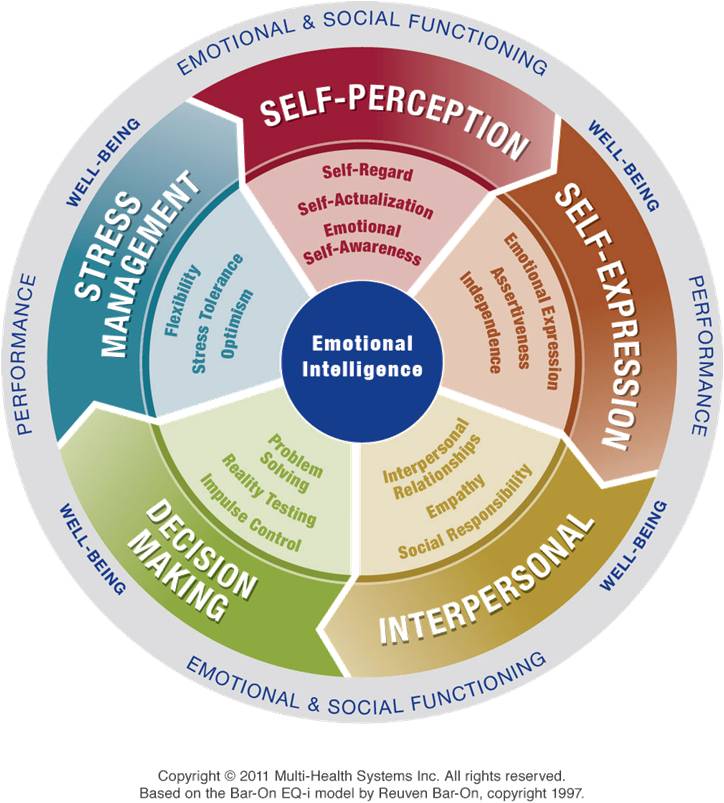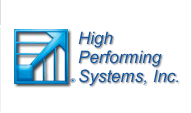Good relationships are good for business. Using Emotional Intelligence is like a fast track to getting along better with employees, co-workers and customers. This series of articles will highlight the different facets of Emotional Intelligence (EI) including how-to tips for practical application and development. These articles are based on the EQ-i® model of EI published by MHS and based on the work of Dr. Reuven Bar-On.
Have you ever left a meeting and berated yourself for not having shared your point of view on the topic of discussion? Do you ever take on too much because you don’t like saying “no” to others? Do you sometimes hold back your opinion because you don’t want to rock the boat? If any of these sound familiar, you may be low on Assertiveness, an Emotional Intelligence (EI) Subscale measured by the
EQ-i 2.0.
On the other hand, do you ever leave a meeting and realize you put your foot in your mouth once again? Are you usually the first person to share an opinion, and does it sometimes stifle the energy in the group? Have you ever been told you’re too aggressive? If so, you may be too high on Assertiveness.
Assertiveness is an important aspect of a person’s Emotional Intelligence, and it’s an area where it’s difficult to find a good balance sometimes. Coaches are often engaged to help clients raise or lower Assertiveness as needed.
Emotional Intelligence is a person’s ability to perceive and manage his/her own emotions in a manner that results in successful interactions with the environment and, if others are present, to also perceive and manage their emotions in a manner that results in successful interpersonal interactions (Henry L. Thompson, Ph.D., 2010).

Since research on Emotional Intelligence began, results overwhelmingly show that—with all other things being equal—people high in EI outperform people who have low EI. Emotional Intelligence is important because it causes us to recognize emotions and to acknowledge the role they play in leadership, decision making, stress management and many other drivers that make or break our success in work and in life.
The EQ-i 2.0, the most scientifically-validated EI assessment available, is proven to measure a person’s Emotional Intelligence accurately. The power of the instrument is in how the five Composite Scales and fifteen Subscales pinpoint a person’s behaviors and the motivations behind those behaviors (see Model).
Assertiveness, an EI Subscale measured by the EQ-i 2.0, refers to the ability to express thoughts and opinions openly, without being aggressive or abusive.
When we drill down into the behaviors that comprise Emotional Intelligence, it’s easy to see that the dimension of Assertiveness plays a key role in the way a person manages (or uses) his or her emotions. But it is also a critical component in the interpersonal aspects of EI as well. Being too low or too high on Assertiveness impacts the way you interact with others and how they will in turn perceive and respond to you. Too little Assertiveness and you appear not to have confidence in expressing your thoughts and opinions. Too much, and you come across as blunt or even aggressive.
Assertiveness, therefore, has a sweet spot. Team members or leaders need enough Assertiveness to share thoughts and opinions in order to contribute to discussions, but also have to temper them and not come across as too pushy or blunt when they do speak up. If you find yourself on one of the extreme ends and want to aim closer to the mid-point on Assertiveness, keep reading for a few tips.
If you’re too low on Assertiveness, here are some suggestions:
- Ask a trusted colleague to call on you in meetings. Enlist the help of a colleague who knows you well. If she senses that you have something to contribute, give her permission to ask for your input on the discussion.
- Prepare in advance. If you know the agenda and topic before the meeting, you can collect your thoughts and feel more confident sharing your opinion with others.
- Increase your baseline. For a week, keep a count of how many times you speak up in eachmeeting to determine a baseline. The following week, aim to increase in small amounts howmuch you contribute. Even speaking up just one extra time per meeting will help you get startedand build your confidence in sharing your thoughts with others.
If you’re too high on Assertiveness, try these techniques:
- Ask a trusted colleague to help you hold back. Ask a friend to sit next to you in meetings. If you start to become too aggressive or speak up too often on a given topic, ask him to give you a nudge with his elbow to help you hold back.
- Let others speak first. If you are usually the first to comment, wait until two others share their thoughts first before you jump in.
- Write it down. If you find that you’re quick to speak, take the time to jot down your thoughts on paper. It will force you to slow down and be intentional on the idea itself. Then when you’re ready to contribute, focus on your tone/delivery in addition to the opinion. This process will help you concentrate on how you share your thoughts and can combat a tendency to come across too strong in your approach.
With intentional effort and practice, you can modify some of your Assertiveness behaviors, whether your goal is to stretch to use more or to hold back and use less. The starting point is to recognize your current level of Assertiveness and honestly evaluate whether it’s working for you. Emotional Intelligence is a dynamic skill set that requires flexibility to changing circumstances. Being able to balance Assertiveness (as appropriate for each circumstance) will increase your chances of being successful in a wide range of interpersonal situations.
For a printable copy of this article, go here.
_____________________________________ Debra Cannarella is the Director of Operations at
High Performing Systems, Inc. (HPS), a consulting
company that provides assessments, consulting
and training solutions to
help organizations excel.
HPS conducts certification training on the EQ-i 2.0
assessment and provides
individual, leader and executive coaching to clients.
High Performing Systems is an award-winning world leader in EQ-i 2.0® certification (since 2005), EI training and implementation, leader coaching and success profiles. Call 706-769-5836 to talk with an experienced EI practitioner about your organization's specific needs.
|
